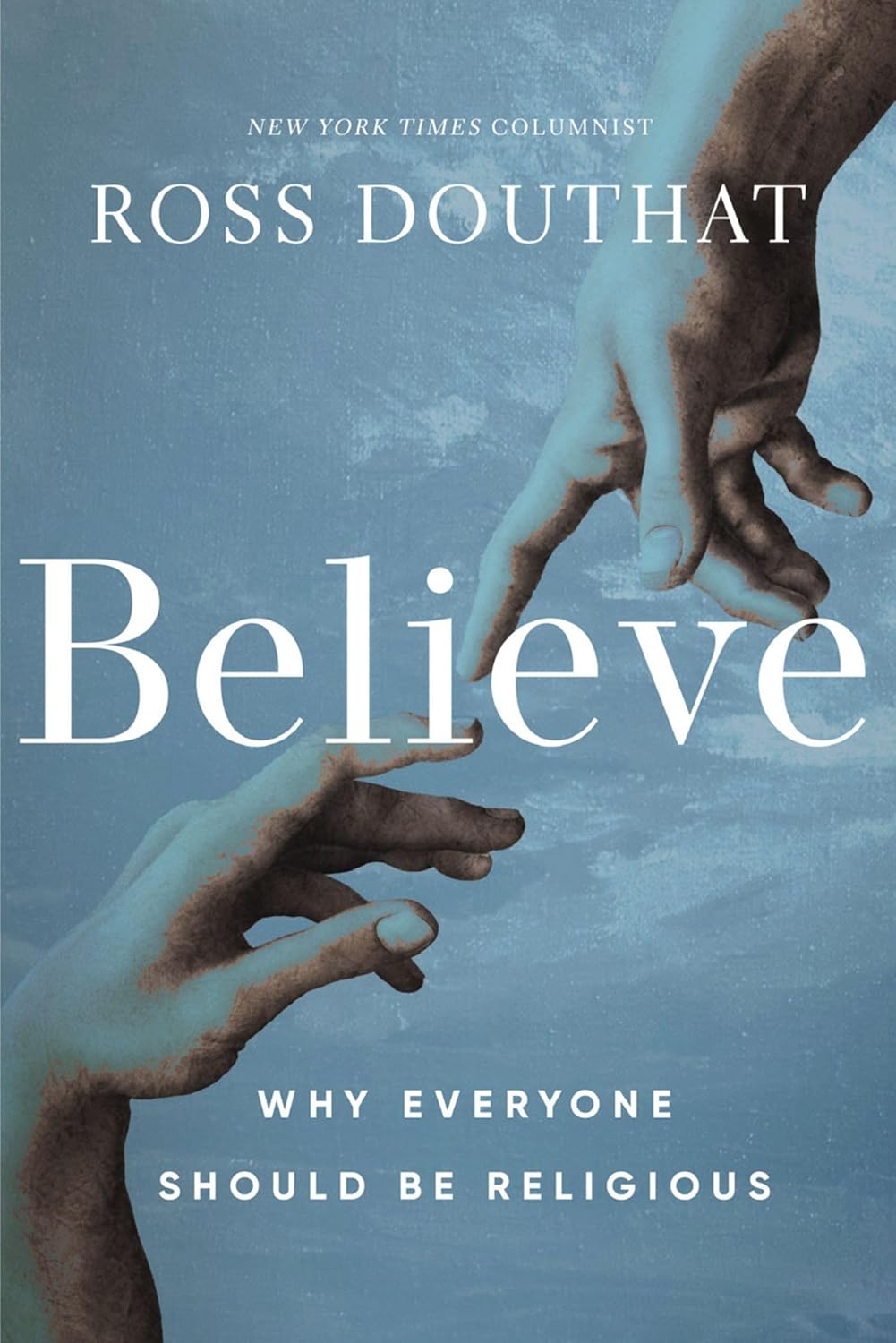If You’re Deconstructing Your Faith, Here’s Help


Hannah’s story isn’t rare. Studies show that nearly 40% of young people raised in Christian homes are deconstructing their faith.*
A sophomore in college, Hannah is typical of many Christian college students. She grew up in church, knew all the worship songs, and was active in youth group. But now she says, “I’m not sure I believe any of it anymore. It’s not that I want to walk away from God. I just don’t know if I can believe — not with everything I’ve learned.”
Many aren’t angry — just disoriented. They’ve not experienced the reality of faith. Perhaps their church experience didn’t connect with their spirit. And they’ve absorbed the cultural narrative that religion is naive, that science and reason have made faith obsolete, and that belief in God is like clinging to fairy tales in the age of data.
But what if the story they’ve been told isn’t the whole truth?
That’s where Ross Douthat’s new book, Believe, comes in — and why I think every young Christian should read it. Described by World magazine as “a Mere Christianity for the 21st century,” Believe is not a book that scolds or shames. Instead, it gently offers something that many young believers desperately need: a reason to hope that faith is not only possible in today’s world — it’s reasonable.
Douthat, a longtime New York Times columnist, knows how to speak into our cultural moment. He’s spent years writing about faith in spaces where belief is often treated with suspicion or even contempt. But rather than retreat into defensiveness, he leans in with humility and thoughtfulness. Believe is his blueprint for thinking your way from doubt to belief — not by ignoring reason, but by taking it seriously.
For young Christians who feel like they’re losing their grip on faith, this book offers a lifeline. Douthat makes the compelling case that nonbelief often requires more intellectual gymnastics than belief. He walks readers through the deep order of the cosmos, the enigma of human consciousness, and the persistent reality of supernatural encounters — all things that secular materialism struggles to explain.
But Believe isn’t just a case for God in the abstract. It’s also a call to return to a faith rooted in tradition — one that is resilient, tested, and full of wonder. Douthat argues that spiritual novelty and vague feel-goodism won’t sustain us. Instead, he points toward historic Christianity as a path not just of belief, but of transformation.
For seekers like Hannah — and maybe for you — this matters. In a world of TikTok debates and endless online cynicism, Douthat’s voice is calm and unhurried. He’s not trying to “win” an argument; he’s inviting us to think more deeply, to reconsider what we’ve dismissed too quickly.
The final chapter, where Douthat shares his own story of belief — not in spite of his doubts, but through them — is especially powerful. It reads less like a conclusion and more like a testimony: that belief is not blind, and faith doesn’t require you to turn off your brain. In fact, it might be the most courageous, coherent way to live.
If you’re a young person trying to hold onto faith in an age that questions everything — or if you love someone who’s slipping away from belief — read Believe. Give it to your friends. Start a conversation.
Because belief isn’t dead. It’s just waiting for someone to open the door.
And sometimes, the first step back to faith is simply realizing that you’re not crazy for hoping it’s all true.
————-
-
42% of U.S. adults have deconstructed the faith of their youth, including 37% of current Christians, according to a 2024 Barna study. Barna Group
-
A separate Barna study found that 59% of young Christians disconnect from church life after age 15, either permanently or for an extended period .
Comments (2)
Leave a Reply Cancel reply
More Posts
![]()



To me this is a commentary of growing up in in a disconnected faith experience (church, family, friends). Disconnected from being loved and loving. Disconnected from authenticity. Disconnected from an aspirational life (abundant life / resurrected life focus vs. sin management focus). It’s an commentary that how Christianity culture is not satisfying our God given itch for truth and it’s experience in the real world.
I’m ordering a copy to read myself and then pass on to my college aged grandchildren…. thanks, Seth